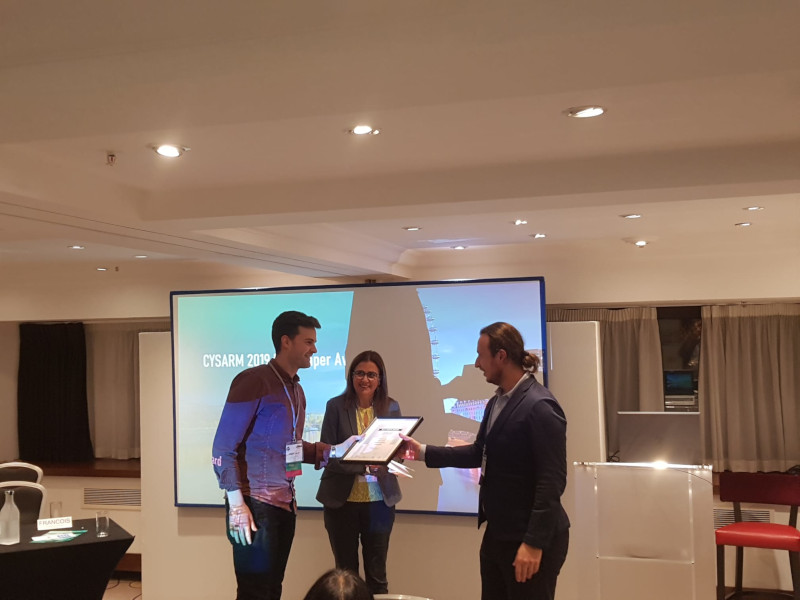1st Workshop on Cyber-Security Arms Race
- by Ursula Polessnig

On the 15th November 2019 The 1st Workshop on Cyber-Security Arms Race CYSARM was held in London
CYSARM’19 Summary
The 1st Workshop on Cyber-Security Arms Race CYSARM was held in London on the 15th of November 2019, co-located with the 26th ACM Conference on Computer and Communications Security CCS. The goal of CYSARM workshop was to foster collaboration among researchers and practitioners to discuss the various facets and trade-offs of cyber-security. In particular, how new technologies and algorithms might impact the cyber-security of existing or future models and systems.
The CYSARM’19 call for papers attracted submissions from 13 countries, from a wide variety of academic and corporate institutions. 4 papers were selected as Full Papers and 1 paper was accepted as Short Paper after a double-blind review by our program committee.
The 1st edition of the Workshop was opened by Daniele Sgandurra (Royal Holloway, University of London), CYSARM Program Chair together with Thanassis Giannetsos (DTU), who briefly introduced the main goals and the workshop agenda. In particular, the program included a keynote talk, two paper sessions, a panel discussion, and a best paper award session.
The Keynote Talk was given by Prof. Virgil Gligor (CMU), who presented ``Winning Against any Adversary on Commodity Computer Systems'' where he argued that defenders' success in the cyber arms race intimately depends on the ability to establish and maintain root of trust in computer systems. With these, the fundamental defender-adversary asymmetry can be changed in favor of the defender, contrary to conventional wisdom. Without these, the adversary will continue to enjoy a tangible advantage over the defender in commodity computer systems and networks.
The Best Paper Award of the 1st edition of the CYSARM Award was given to the paper "Bootstrapping Trust in a “Trusted” Virtualized Platform", presented by Hagen Lauer (Monash University).
CYSARM’19 has been supported by the following EU projects: FutureTPM (GA: 779391), PROMETHEUS (GA:780701), ASTRID (GA: 786922) and PAPAYA (GA: 786767). All projects have received funding from the European Union's Horizon 2020 research and innovation programme under the above-mentioned grant agreement numbers.

